Can Team BikeExchange bounce back from its worst season ever?
General manger Copeland discusses why the men's and women's teams dropped down the rankings this year and how the Australian team plans to turn it around in 2022
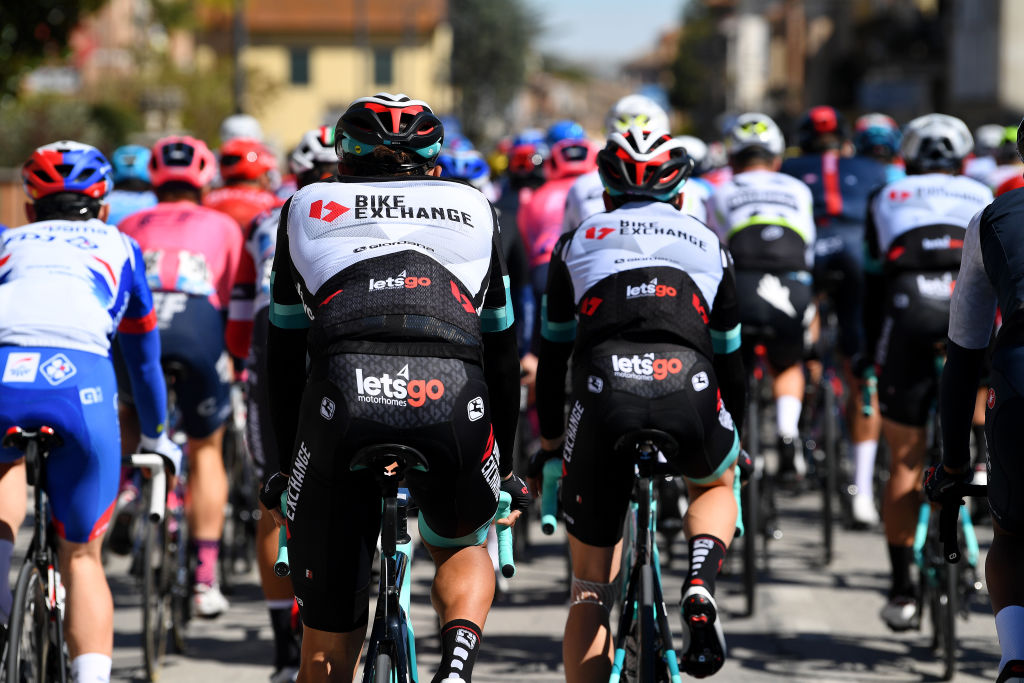
When Team BikeExchange lined up at the start of 2021 there was no doubt it faced some challenges. Annemiek van Vleuten with her dominant position, not only in the team but also the women’s peloton, left a big hole to fill when she headed to Movistar, while Adam Yates' and Daryl Impey's departures from the men’s squad removed two of the three top points performers.
It also went further than the riders, as there had been a parting of ways with Shayne Bannan, the general manager since the team's inception, following a failed deal with Manuela Fundación.
Despite the losses, perhaps even partly because of them, there still seemed to be a sense of excitement for the year ahead with a strong contingent of contenders in the women’s team looking ready to step up, a men’s Classics squad built around the newly-returned Michael Matthews as well as a developing GC support group around 2018 Vuelta a España winner Simon Yates.
There was an acknowledgement the loss of high point earning riders would likely impact on results but also promise within the team, generating hope that the losses could at least be well mitigated. However, there was no mild dip on the road ahead, but instead, a steep descent, as 2021 turned out to be the worst year for Australia’s only WorldTour squad in its ten year history and by a big margin at that.
"It would be great if every year was a winning year, but it's not, and that’s sport,” Team BikeExchange general manager Brent Copeland told Cyclingnews. “When negativity starts and when you start having issues and accidents and just problems, it just seems to be like a magnet and attracts more problems. And that was just one of those years. We're going to turn it around next year, I'm confident we will.”
To get back to where the team once was, however, the turnaround will need to be substantial.
The men’s squad, which, apart from the COVID-19 interrupted year of 2020, had consistently delivered close to 30 wins or more a season, saw their results tally dip to nine in 2021. The position on the rankings followed a similar trajectory, falling from 11th in 2020 – already close to its lowest point since the team launched in 2012 – right down to 19th.
Get The Leadout Newsletter
The latest race content, interviews, features, reviews and expert buying guides, direct to your inbox!
Things weren’t any better for the Team BikeExchange women, who, with seven wins in total, went from third to tenth on the rankings. Every single other Women's WorldTeam found a position above the long-established Australian squad.
So what went wrong and what is the team planning to do to deliver that turnaround?
Eggs in one basket
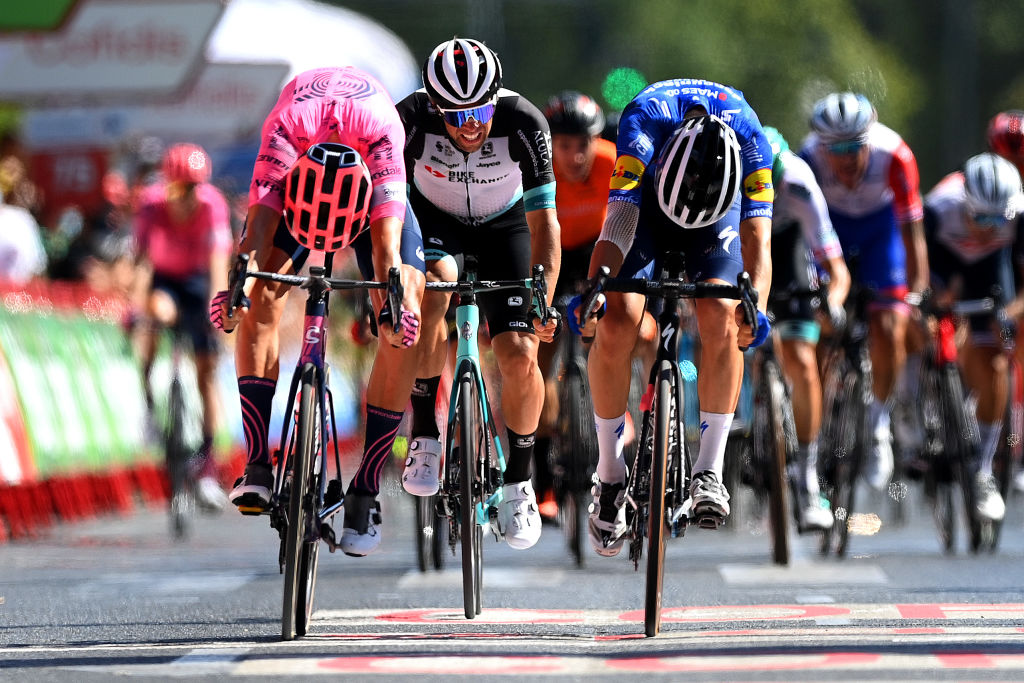
Team BikeExchange had, in the men’s squad, pinned their hopes on two riders, Matthews and Yates, so if both those riders deliver wins aplenty and fare well, the team fares well and if they don’t, you get results that look something like this year.
"This was our decision as well to say, right, let's put all the eggs in one basket with Simon, all the eggs in one basket, with Michael Matthews, and build the team around them,” said Copeland. “The unfortunate part was Simon did a great Giro, which was fantastic with third, and then he had the accident and crash in the Tour de France.”
“So when you put all your eggs in one basket with one rider and you do have injuries and issues like that, you know that you're going to lose those points. There is just no two ways about it.”
The points Yates accumulated at the Giro d’Italia accounted for more than half his total for the year. As you would expect, the two riders the team had put their backing behind were the top points contributors to the team, with Yates first and Matthews not far behind.
For Matthews, who has 37 wins to his name, 2021 was a year filled with promise as he walked back into the Australian squad with unequivocal backing, something he at times has lacked. There were no shortage of top tens, fives and even quite a few podium appearances but the breakthrough didn’t come. The 2021 season became the only one in his 12 years of racing that he didn’t deliver a win.
“Michael was really good at putting in the effort that he did, and he's such a professional, but he still wasn't able to bring home that victory that we had hoped for,” said Copeland. “It was not due to lack of trying. You can see at the Vuelta how much effort he put in. It's just that a lot of races he did find himself with riders the likes of [Wout] Van Aert and [Mathieu] van der Poel and riders with similar characteristics, which unfortunately had the upper hand on him this year and that's just the way it went."
Had some of those top tens and podiums Matthews got at the Vuelta a España turned into wins, or Yates not crashed out of the Tour de France just as the stages that suited approach, that would have changed things completely, said Copeland.
"That wasn't the case, that's sport, that's what makes sport so exciting. It's part of why we are here."
Injuries galore
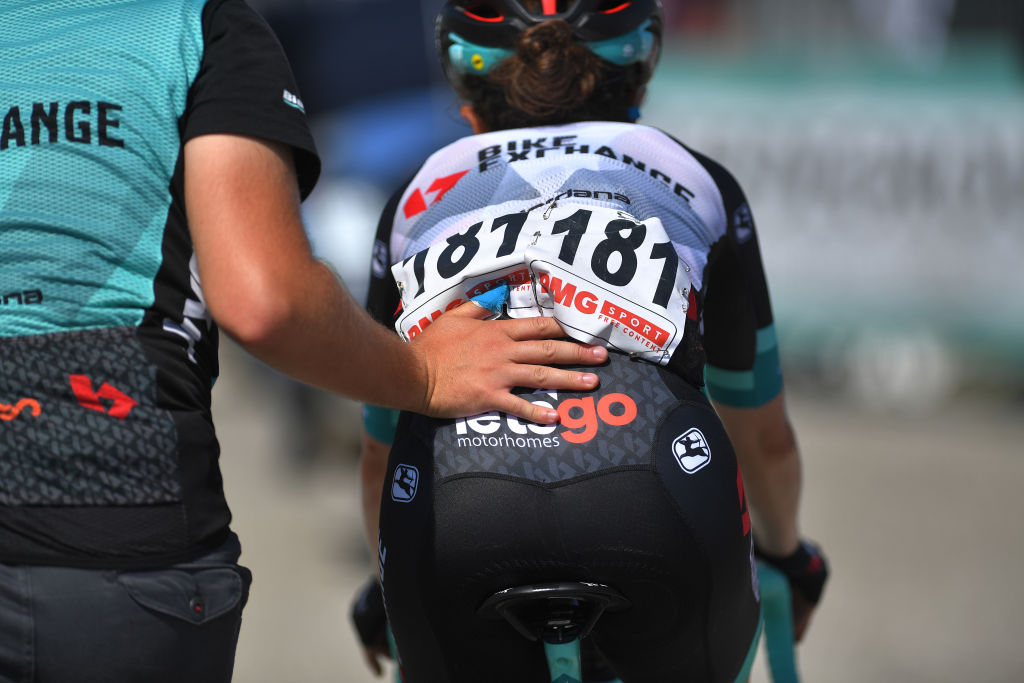
The fall down the rankings in the women’s team looked likely to be softened after Van Vlueten’s departure by the fact that a group of strong experienced riders, who had by and large been working for the Dutch phenomena, would now be able to go for their own chances.
At the start of the season it seemed there was a sense of excitement from the likes of Grace Brown, Amanda Spratt, Lucy Kennedy and Sarah Roy about the year ahead. Spratt – who has twice been on Road Worlds and overall Giro d’Italia Donne podium – was a clear leader while others looked well-placed to share the opportunities and the performance load. The predictability had gone, but the promise of results hadn't.
The year started well enough, with Roy an unexpected winner of the road race at Australia’s National Championships and Georgia Williams taking the New Zealand road and time-trial title. Brown delivered on the potential on full display in 2020, taking her first Women’s WorldTour victory at Classic Brugge-De Panne in March.
Then it was time for the climbers of Spratt and Kennedy to step up at the Ardennes Classics and in the swathe of race days in Spain during May. That, however, is also when the injury problems really started to bite.
Kennedy crashed at Liège-Bastogne-Liège and required surgery on complicated fractures of her hand and collarbone while anointed team leader Spratt continued to struggle to find the form that had just looked to be building over earlier seasons. It was only after a disappointing Olympic Games in Tokyo that she found out why. Spratt was diagnosed with Iliac artery endofibrosis near the end of her podium free year, set for surgery to hopefully remedy the problem in the off-season.
“The women's team had a really unlucky, unlucky run this year,” said Copeland. “Then with Amanda having this issue that we only picked up late in the season … and obviously her being our leader, that didn't work out really well.
“I think what we learnt from this year is you've got to work around two leaders on the team, so if your one leader does have an issue. You at least have a backup Plan B. That's something we can come out of this year with."
Brown was again the rider who stepped into the void, delivering another Women’s WorldTour win in stage 1 of Vuelta a Burgos Feminas but then she too was out injured, ending her season in August so she could have surgery on her shoulder. Roy then also broke her wrist at the Simac Ladies Tour.
There were some unexpected contributors to the win total of seven, as Urška Žigart won the final stage of the four-day Setmana Ciclista Valenciana, while Teniel Campbell delivered a stage win at the Tour de l’Ardèche in her first year with a Women’s WorldTour team. There was no one, however, who even came close to contributing the way Brown did, even though her season was cut short.
Given she is moving to FDJ Nouvelle-Aquitaine Futuroscope in 2022 the team will, for a second season in a row, wave goodbye to a rider who had delivered near half of its points. That means the gap the team must fill next season has been pulled wider and even if injuries aren't a problem next season, there now isn’t a clear set of established riders in the team ready to take on that task.
Australian champion Roy is moving on to Canyon-SRAM, Spratt will spend the first part of the season recovering from surgery, Kennedy has retired, along with Janneke Ensing. A relatively bare roster is, however, starting to be bolstered by new signings, with the first announced as Kristen Faulkner, who will step into a leadership role.
The team has also added 22-year-old Ruby Roseman-Gannon to the roster, a stand-out performer among the up and coming domestic riders in recent seasons.
A 2022 rebound?
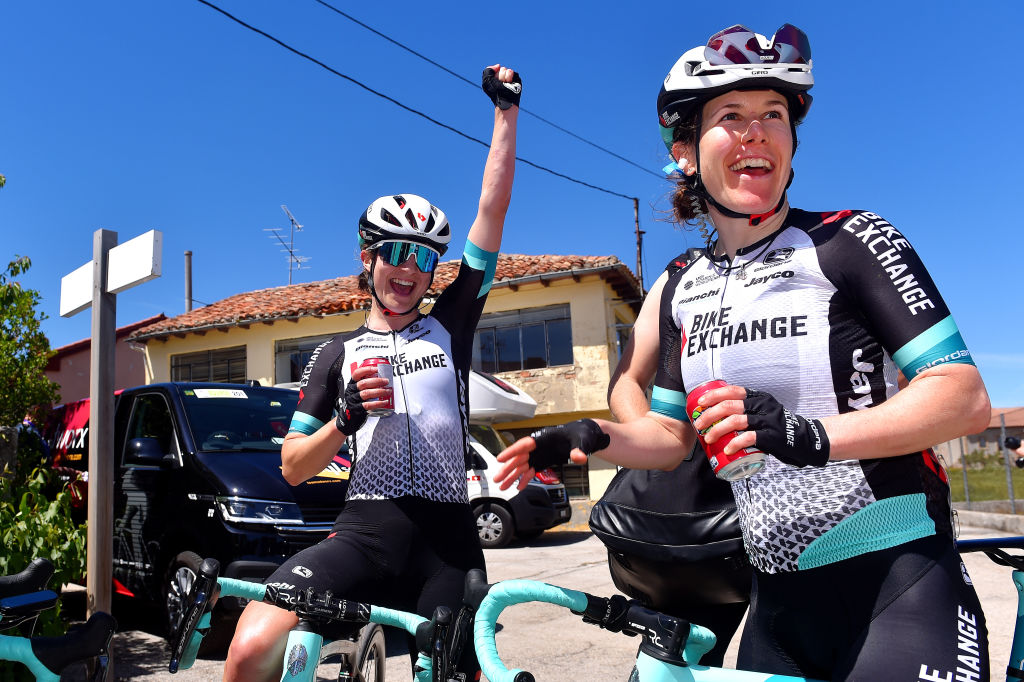
While there may be little choice but to inject some new blood into the women's team, it looks like it will be more of a steady as she goes approach with the men. There are less spots vacant – one being filled by another young Australian Kelland O'Brien and another by Italian time trial champion Matteo Sobrero – so the approach of focussing on Matthews and Yates is likely to remain.
The team around them has had a chance to develop this season with younger riders like Nick Schultz and Lucas Hamilton continuing to progress, even though the Tour de France, which Hamilton also had to leave after a crash, wasn't quite the Grand Tour leadership debut that may have been hoped for.
The strong Giro d’Italia group the team put together around Yates, was one of the positives Copeland picked out from the season, along with Yates attacking performance at the race.
“We have analysed the year, we've seen where we can improve. We've seen where we've made mistakes, we've seen what we've worked well on, which we can carry on working well on,” Copeland told Cyclingnews. “We've been through all those details, both with the technical staff and the performance staff and we're going to apply those changes, those improvements to next year. And with that being applied, I definitely feel we will bounce back."
The rankings may have gone down, but morale doesn’t seem to have followed, with the team instead focussed on learning the lessons that will set it on a better path next year.
“At the training camp I felt an incredible positive energy of enthusiasm from both staff and riders,” said Copeland. “There was genuinely a good feeling with both men and women and this enthusiasm of wanting to turn that around because the riders themselves, they are competitive, they want to win, they want to show – whether it's management, performance, technical or the owner of the team – they want to show what they are worth and they want to show their appreciation.”
“They haven't been able to do that and you can see the frustration in them. So I saw that at this training camp that we had that there is definitely a lot in it to turn it around, and we will be applying changes to turn it around.”
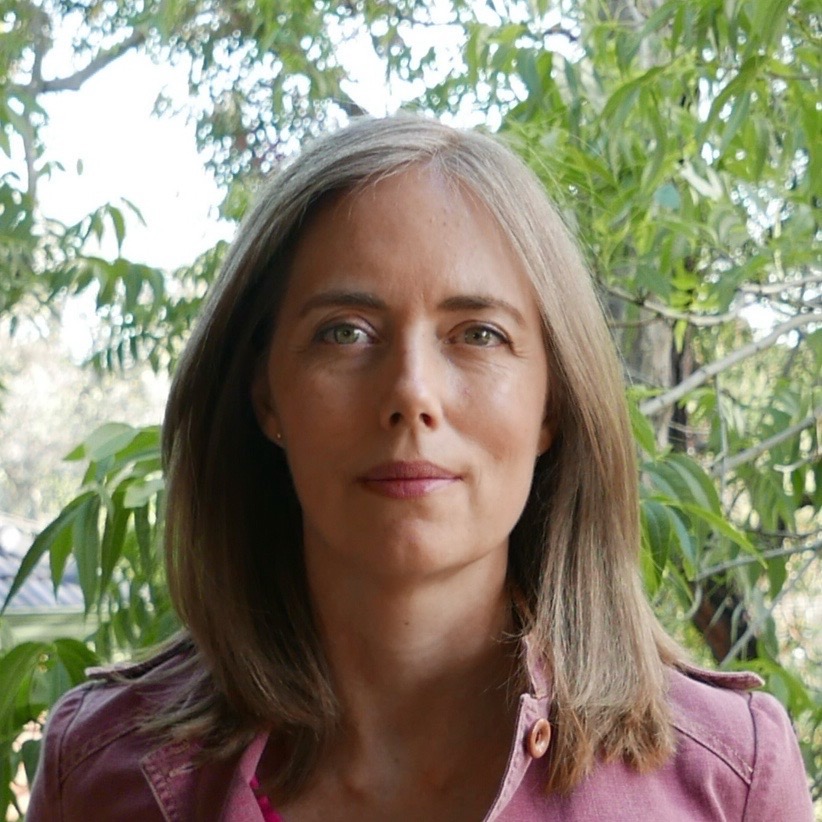
Simone is a degree-qualified journalist that has accumulated decades of wide-ranging experience while working across a variety of leading media organisations. She joined Cyclingnews as a Production Editor at the start of the 2021 season and has now moved into the role of Australia Editor. Previously she worked as a freelance writer, Australian Editor at Ella CyclingTips and as a correspondent for Reuters and Bloomberg. Cycling was initially purely a leisure pursuit for Simone, who started out as a business journalist, but in 2015 her career focus also shifted to the sport.